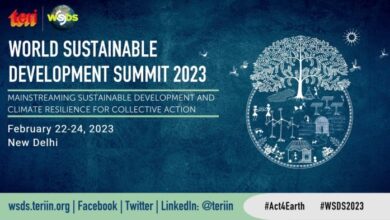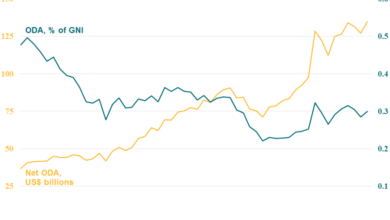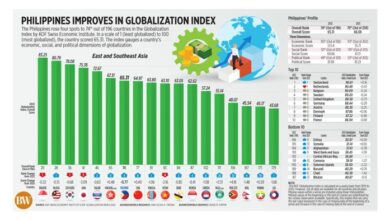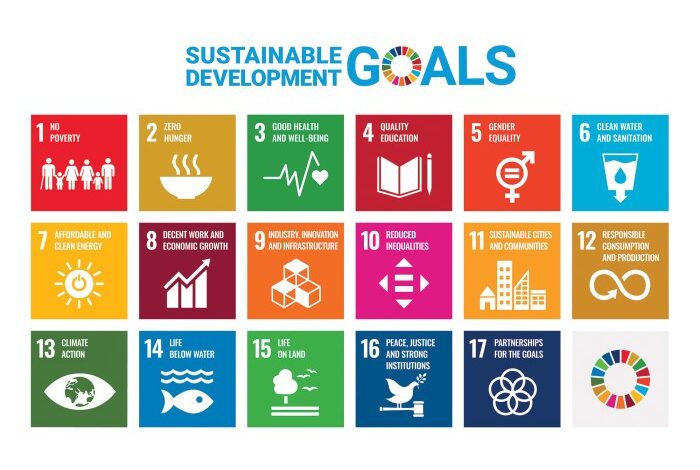
United Nations: Shaping Global Development
United nations on development issues – The United Nations, a global organization dedicated to international cooperation, plays a crucial role in addressing development issues across the world. From its inception, the UN has been at the forefront of promoting peace, security, and sustainable development, working tirelessly to improve the lives of millions around the globe.
The UN’s development agenda is vast and multifaceted, encompassing a wide range of challenges such as poverty, hunger, inequality, climate change, and lack of access to education and healthcare. The organization’s work involves fostering collaboration among member states, providing technical assistance, and implementing programs that address these critical issues.
The UN’s Role in Development
The United Nations (UN) plays a pivotal role in global development, fostering international cooperation and promoting sustainable progress across the world. Since its inception, the UN has been deeply involved in addressing development challenges, working towards a more equitable and prosperous future for all.
Historical Involvement in Development Issues
The UN’s engagement in development issues dates back to its founding in 1945. The organization’s charter recognized the interconnectedness of peace, security, and development, and highlighted the need for international collaboration to address global challenges. The UN’s initial focus was on rebuilding war-torn nations and providing humanitarian assistance, but its role evolved to encompass a broader range of development objectives.
Key International Development Goals and Initiatives
The UN has spearheaded several key international development goals and initiatives, shaping the global development agenda. These include:
- The Millennium Development Goals (MDGs):Launched in 2000, the MDGs set eight ambitious goals to be achieved by 2015. These goals addressed poverty reduction, hunger, education, health, gender equality, environmental sustainability, and global partnerships. The MDGs significantly impacted global development, leading to progress in key areas.
- The Sustainable Development Goals (SDGs):Building on the MDGs, the SDGs were adopted in 2015 and set 17 interconnected goals to be achieved by 2030. The SDGs aim to address a wider range of development challenges, including climate change, inequality, and peace and justice.
Organizational Structure and Key Agencies
The UN’s organizational structure reflects its multifaceted approach to development. Several specialized agencies and programs contribute to the UN’s development work:
- United Nations Development Programme (UNDP):The UNDP is the UN’s global development network, working in over 170 countries. It supports countries in achieving the SDGs, focusing on poverty reduction, democratic governance, and crisis prevention and recovery.
- United Nations Children’s Fund (UNICEF):UNICEF works to improve the lives of children around the world. It provides humanitarian assistance, promotes child rights, and supports programs in education, health, and sanitation.
- World Food Programme (WFP):The WFP is the leading humanitarian organization saving lives and changing lives, delivering food assistance in emergencies, and working to improve nutrition and build resilience.
- United Nations Population Fund (UNFPA):UNFPA works to deliver a world where every pregnancy is wanted, every childbirth is safe, and every young person’s potential is fulfilled.
- United Nations Entity for Gender Equality and the Empowerment of Women (UN Women):UN Women works for the elimination of discrimination against women and girls, the empowerment of women, and the achievement of equality between women and men as partners and beneficiaries of development, human rights, humanitarian action, and peace and security.
Development Challenges and Priorities
The United Nations (UN) plays a crucial role in addressing global development challenges, striving to achieve a more equitable and sustainable world for all. The UN’s development agenda focuses on a wide range of interconnected challenges, aiming to create a world free from poverty, hunger, and inequality, while safeguarding the environment for future generations.
Poverty and Inequality
Poverty and inequality remain persistent global challenges, hindering progress towards sustainable development. The UN recognizes that poverty is multidimensional, encompassing not only income but also access to essential services like healthcare, education, and clean water. The UN’s approach to addressing poverty and inequality involves promoting inclusive economic growth, investing in human capital, and strengthening social protection systems.
The UN’s Sustainable Development Goal (SDG) 1, “End poverty in all its forms everywhere,” underscores the commitment to eradicating extreme poverty by 2030.
The UN also focuses on reducing inequality within and among countries, recognizing that inequality can exacerbate poverty and hinder development.
Climate Change
Climate change is a defining challenge of our time, with far-reaching consequences for human societies and ecosystems. The UN is actively working to address climate change through international cooperation, promoting sustainable development, and advocating for ambitious climate action.
The Paris Agreement, adopted under the UN Framework Convention on Climate Change (UNFCCC), is a landmark agreement that aims to limit global warming to well below 2 degrees Celsius, preferably to 1.5 degrees Celsius, compared to pre-industrial levels.
The United Nations plays a crucial role in tackling global development challenges, but its efforts are often met with criticism and resistance. This tension was evident during recent IMF and World Bank protests in Washington D.C. , where activists argued that these institutions perpetuate inequality and hinder true progress.
Despite the protests, the UN remains committed to its mission of fostering sustainable development and achieving a more equitable world for all.
The UN also supports countries in adapting to the impacts of climate change, particularly vulnerable communities, through initiatives like the Green Climate Fund.
Health and Well-being
Ensuring access to quality healthcare and promoting well-being are essential for sustainable development. The UN addresses health challenges through various initiatives, including the fight against infectious diseases like HIV/AIDS and malaria, promoting maternal and child health, and strengthening health systems.
The UN’s SDG 3, “Ensure healthy lives and promote well-being for all at all ages,” aims to achieve universal health coverage and reduce preventable deaths from communicable and non-communicable diseases.
The UN also recognizes the importance of mental health and well-being, promoting mental health awareness and supporting the integration of mental health services into primary healthcare systems.
Education and Skills Development
Education is a fundamental human right and a crucial driver of development. The UN promotes access to quality education for all, particularly girls and marginalized groups, and emphasizes the importance of skills development to equip individuals for the changing world of work.
The UN’s SDG 4, “Ensure inclusive and equitable quality education and promote lifelong learning opportunities for all,” aims to achieve universal access to quality education and promote lifelong learning opportunities for all.
The United Nations plays a vital role in tackling global development issues, advocating for sustainable solutions and promoting international cooperation. However, it’s important to acknowledge the influence of corporate power in shaping these efforts. A recent study revealed some startling corporate power facts and stats , highlighting the need for greater transparency and accountability in the global development agenda.
Understanding the dynamics of corporate power is crucial for the UN to effectively address challenges like poverty, inequality, and climate change.
The UN supports countries in strengthening education systems, developing relevant curricula, and promoting innovative teaching methods.
Peace and Security
Peace and security are essential for sustainable development. Conflict and violence can undermine development efforts, displace populations, and exacerbate poverty and inequality. The UN works to prevent conflict, promote peacebuilding, and address the root causes of conflict through diplomatic efforts, peacekeeping operations, and humanitarian assistance.
The UN Security Council is responsible for maintaining international peace and security.
The UN also supports the rule of law, human rights, and the peaceful resolution of disputes.
The United Nations plays a crucial role in addressing development issues, working to alleviate poverty and promote sustainable growth. One of the major challenges that has consistently impacted development is the issue of debt, particularly as seen in the debt and the global economic crisis of 1997-1999.
The UN’s efforts to address these challenges involve promoting fair debt management practices, supporting countries in their economic recovery, and advocating for a more equitable global financial system.
UN Development Programs and Initiatives
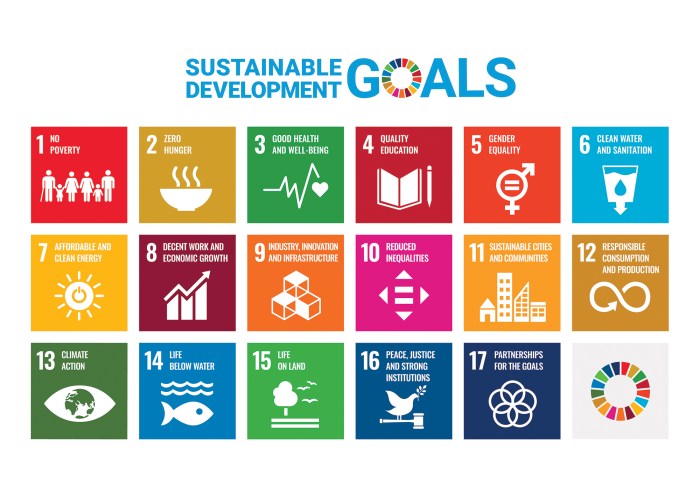
The United Nations (UN) has a wide range of development programs and initiatives aimed at addressing global challenges and promoting sustainable development. These programs are designed to support countries in achieving the Sustainable Development Goals (SDGs), a set of 17 interconnected goals adopted by the UN in 2015.
Poverty Reduction
Poverty reduction is a central focus of UN development efforts. The UN recognizes that poverty is a multidimensional issue, encompassing economic, social, and political dimensions. The UN’s poverty reduction programs aim to empower individuals and communities to break the cycle of poverty by promoting economic opportunities, improving access to essential services, and fostering social inclusion.
“Ending poverty in all its forms everywhere is the greatest global challenge and an indispensable requirement for sustainable development.”
United Nations
The UN’s key poverty reduction programs include:
- The Millennium Development Goals (MDGs):The MDGs, adopted in 2000, aimed to reduce extreme poverty by half between 1990 and 2015. The MDGs achieved significant progress in reducing poverty, but many challenges remain. The SDGs, which succeeded the MDGs, build upon their achievements and aim to end poverty in all its forms by 2030.
- The Sustainable Development Goals (SDGs):The SDGs encompass a broader range of development goals, including poverty reduction, education, healthcare, gender equality, and climate change. The SDGs aim to leave no one behind and to ensure that all people have the opportunity to live in dignity and prosperity.
- The World Bank:The World Bank is a UN specialized agency that provides financial and technical assistance to developing countries. The World Bank’s poverty reduction programs focus on supporting economic growth, improving infrastructure, and strengthening governance.
- The International Monetary Fund (IMF):The IMF is another UN specialized agency that provides financial assistance to countries facing economic difficulties. The IMF’s poverty reduction programs aim to stabilize economies, promote sustainable growth, and reduce poverty.
UN Development Partnerships and Collaborations
The UN’s development efforts are strengthened by robust partnerships and collaborations. These partnerships encompass a wide range of actors, including governments, civil society organizations, the private sector, academia, and individuals. They are crucial for achieving the Sustainable Development Goals (SDGs) and addressing global challenges.
Types of Partnerships
The UN engages in various types of partnerships, each contributing to different aspects of development. These partnerships can be categorized as follows:
- Government-to-government partnerships:These partnerships involve collaborations between UN agencies and national governments to implement development programs and policies. For example, the UN Development Programme (UNDP) works with governments to design and implement poverty reduction strategies.
- Civil society partnerships:The UN collaborates with non-governmental organizations (NGOs), community-based organizations, and other civil society actors to provide services, advocate for policy changes, and empower local communities. For example, UNICEF works with NGOs to provide education and healthcare services to children in developing countries.
- Private sector partnerships:The UN partners with businesses and corporations to leverage their expertise, resources, and innovative solutions to address development challenges. For example, the UN Global Compact encourages businesses to adopt sustainable practices and contribute to the SDGs.
- Academic partnerships:The UN collaborates with universities and research institutions to conduct research, develop innovative solutions, and build capacity for development. For example, the UN University (UNU) conducts research on global issues such as climate change, poverty, and conflict.
- Individual partnerships:The UN also engages with individuals through initiatives such as the UN Volunteers program, which mobilizes individuals to contribute their skills and expertise to development projects.
Key Partners and Stakeholders
The UN works with a vast network of partners and stakeholders, each playing a vital role in achieving development goals. Some key partners include:
- The World Bank:The World Bank provides financial and technical assistance to developing countries, focusing on poverty reduction, economic growth, and sustainable development.
- The International Monetary Fund (IMF):The IMF provides financial assistance to countries experiencing economic difficulties and works to promote global economic stability.
- The United Nations Development Programme (UNDP):The UNDP works with developing countries to achieve the SDGs, focusing on poverty reduction, human development, and good governance.
- The United Nations Children’s Fund (UNICEF):UNICEF focuses on improving the lives of children around the world, providing education, healthcare, and protection services.
- The World Health Organization (WHO):The WHO works to promote health and well-being for all, providing technical assistance and guidance to countries on health issues.
- The Food and Agriculture Organization of the United Nations (FAO):The FAO works to improve food security and nutrition, reduce hunger, and promote sustainable agriculture.
Benefits of Partnerships, United nations on development issues
Partnerships are essential for achieving development goals for several reasons:
- Resource mobilization:Partnerships allow the UN to leverage the resources of other organizations, including financial, technical, and human resources. This helps to expand the reach and impact of development programs.
- Expertise and knowledge sharing:Partnerships provide opportunities to share knowledge and expertise, leading to more effective and sustainable development solutions. This includes sharing best practices, lessons learned, and innovative approaches.
- Increased accountability and transparency:Partnerships promote accountability and transparency in development efforts. This ensures that development programs are implemented effectively and that resources are used efficiently.
- Empowerment and ownership:Partnerships empower local communities and stakeholders to participate in development initiatives, promoting ownership and sustainability. This ensures that development programs are relevant to the needs of the communities they serve.
The UN’s Impact on Development
The United Nations has played a significant role in global development since its inception, striving to improve the lives of people worldwide. The organization’s development programs and initiatives have addressed a wide range of challenges, from poverty and hunger to education and healthcare.
However, evaluating the effectiveness of these programs requires a nuanced understanding of their successes, limitations, and the complex contexts in which they operate.
Effectiveness of UN Development Programs and Initiatives
The effectiveness of UN development programs can be assessed by considering their impact on various indicators, such as poverty reduction, improved access to education and healthcare, and sustainable development. While there is no single metric for measuring the effectiveness of UN programs, several factors contribute to their success:
- Multi-sectoral Approach:UN programs often address multiple development challenges simultaneously, recognizing the interconnectedness of various aspects of development. For example, programs aimed at improving agricultural productivity may also include components focused on education, health, and infrastructure development.
- Collaboration and Partnerships:The UN collaborates with governments, civil society organizations, private sector actors, and other international organizations to implement its programs effectively. This collaborative approach leverages expertise, resources, and local knowledge to achieve development goals.
- Focus on Human Rights and Equality:The UN emphasizes human rights and equality in its development work, ensuring that programs benefit all members of society, particularly marginalized groups. This focus contributes to building inclusive and equitable societies.
- Long-Term Development Strategy:The UN’s development programs are designed to promote sustainable and long-term development, addressing the root causes of poverty and inequality. This approach aims to create lasting positive change in the lives of people.
Examples of Successful UN Development Interventions
The UN has implemented numerous successful development interventions over the years, demonstrating its impact on various aspects of development. Some notable examples include:
- Eradication of Smallpox:The World Health Organization (WHO), a specialized agency of the UN, played a crucial role in the global eradication of smallpox in 1980. This achievement highlights the UN’s ability to coordinate international efforts and achieve significant public health goals.
- Millennium Development Goals (MDGs):The MDGs, adopted in 2000, set eight ambitious goals for improving the lives of people in developing countries. While not all goals were fully achieved, the MDGs significantly contributed to reducing poverty, improving access to education and healthcare, and promoting gender equality.
The progress made under the MDGs paved the way for the Sustainable Development Goals (SDGs).
- Sustainable Development Goals (SDGs):The SDGs, adopted in 2015, are a set of 17 interconnected goals aimed at achieving sustainable development by 2030. The SDGs address a broad range of development challenges, including poverty, hunger, inequality, climate change, and environmental protection. The UN is actively working with member states and partners to achieve these goals.
Challenges and Limitations Faced by the UN in its Development Work
Despite its successes, the UN faces numerous challenges in its development work:
- Funding Constraints:The UN relies heavily on voluntary contributions from member states for its development programs. Fluctuations in funding can hinder the implementation and effectiveness of programs.
- Political Instability and Conflict:Political instability and conflict can disrupt development programs and create challenges for humanitarian assistance. The UN often faces obstacles in accessing conflict zones and providing aid to those in need.
- Corruption and Lack of Accountability:Corruption and lack of accountability can undermine development efforts, diverting resources away from intended beneficiaries. The UN is working to strengthen governance and promote transparency in developing countries.
- Inequality and Marginalization:Despite efforts to promote equality, persistent inequalities and marginalization continue to hinder development progress. The UN is working to address these issues through targeted programs and advocacy efforts.
The Future of UN Development: United Nations On Development Issues
The UN’s role in international development is evolving rapidly in response to a changing world. Emerging trends, such as climate change, technological advancements, and growing inequalities, are shaping the development landscape and presenting new challenges. To remain effective, the UN must adapt its strategies and strengthen its efforts to address these evolving needs.
Adapting to a Changing Development Landscape
The UN must adapt its strategies to meet the evolving needs of a changing development landscape. The world is facing a number of complex challenges, including climate change, technological advancements, and growing inequalities. These challenges require a comprehensive and collaborative approach to development.
The UN must leverage its unique position as a global convener and coordinator to foster collaboration among governments, civil society, and the private sector to address these challenges.
Strengthening UN Development Efforts
The UN can strengthen its development efforts in several key areas. One area of focus should be on building resilience to climate change. Climate change is a major threat to development, and the UN must work to support countries in adapting to its impacts and mitigating its effects.
Another area of focus should be on promoting inclusive and sustainable economic growth. The UN must work to create an environment where everyone has the opportunity to benefit from economic growth and where economic development is sustainable and does not harm the environment.
Finally, the UN must work to strengthen governance and promote peace and security. Good governance is essential for sustainable development, and the UN must support countries in building strong institutions and promoting peaceful and inclusive societies.
Strategies for Adapting to Evolving Development Needs
The UN can adapt to evolving development needs by adopting a number of strategies. One strategy is to embrace innovation and technology. The UN must leverage new technologies, such as artificial intelligence and big data, to improve its development programs and initiatives.
Another strategy is to strengthen partnerships with non-state actors. The UN must work more closely with civil society organizations, the private sector, and other non-state actors to achieve its development goals. Finally, the UN must prioritize data and evidence-based decision-making.
The UN must use data and evidence to inform its policies and programs and to measure its impact.



